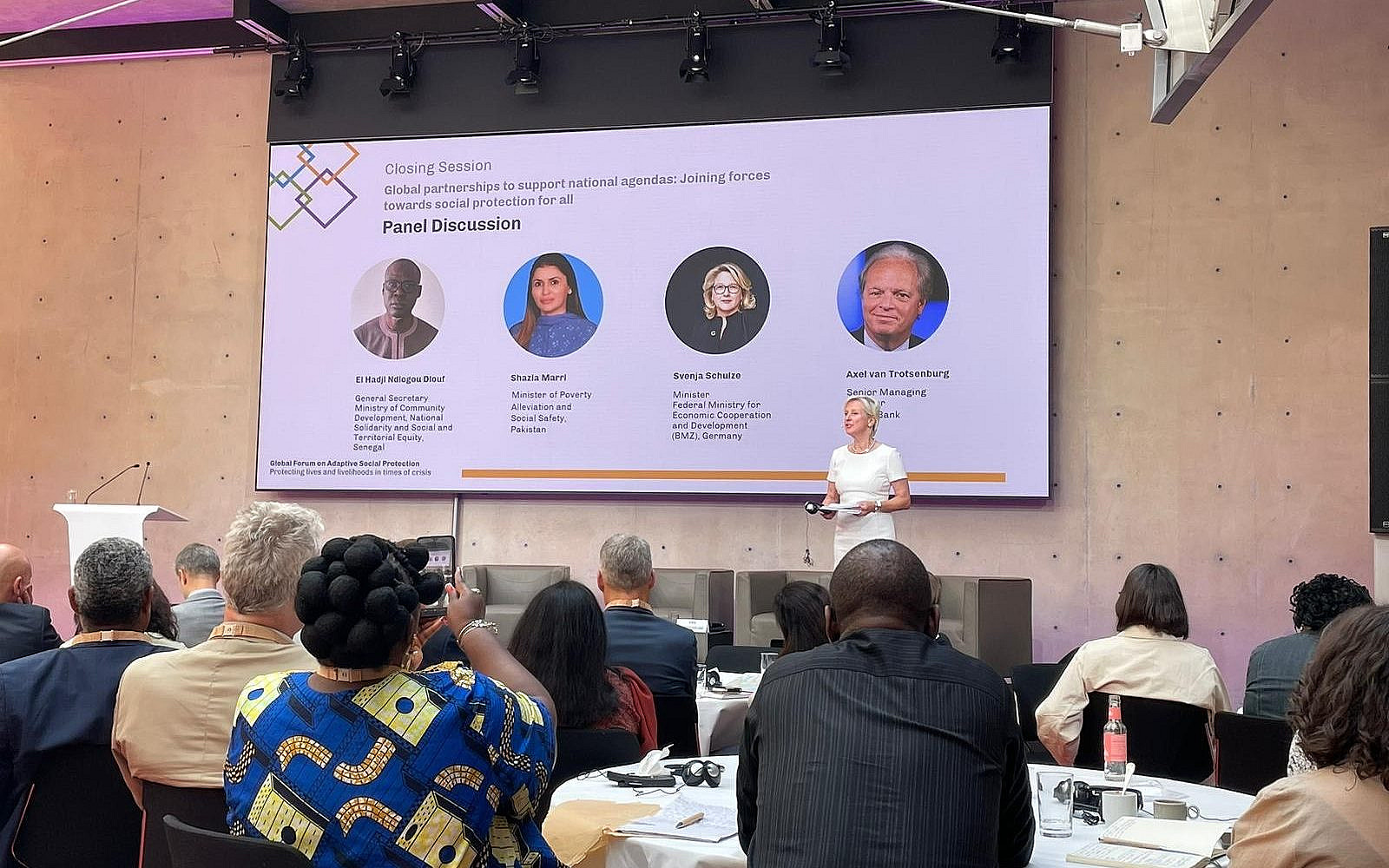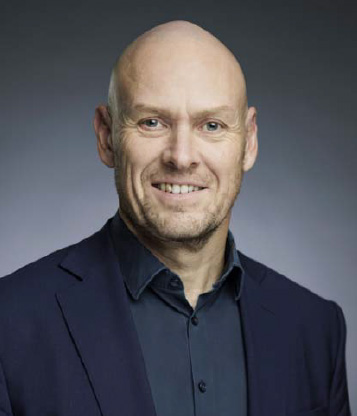A Global Forum To Boost Adaptive Social Protection
The Global Forum on Adaptive Social Protection organized in Berlin in June 2023 was an opportunity for policymakers, practitioners and social protection experts to jointly examine and discuss the scope and potential of Adaptive Social Protection to foster resilience and prepare for shocks. Several Sahel Alliance members participated in this forum, which was co-organized by the World Bank and BMZ. At the end of this event, we met Dirk Meyer, Director-General Global Health Employment, Transformation of the Economy, Digital Technologies, Food and Nutrition Security, at the German Federal Ministry for Economic Cooperation and Development (BMZ).
Why have you been organizing this event on Adaptive Social Protection in Berlin?
We think that social protection, and especially adaptive social protection, has a political momentum. Our experience with the global Covid-19-crisis and other crises such as price shocks and food insecurity following the Russian invasionin Ukraine, is that strengthening the resilience of societies, especially the resilience of vulnerable groups, is crucial for global stability.
Furthermore, in countries which invested in social protection, societies came much better through the Covid-19-crisis than others. Based on this evidence, we see that a lot of governments and organisations have put the construction of social safety nets and social protection systems on their agenda. We wanted to seize this political momentum by organizing an international conference with a view to learning from each other’s experience and intensifying partnerships for social protection.
Since my minister put social protection very high on the agenda, the conference was also very important as a forum to boost minister Schulze’s initiative on intensified cooperation for social protection with the World Bank and UN organizations and agencies.

We understood that social protection was very close to the heart of the Minister, Mrs Schulze, and in the development policy of Germany. What are current German commitments around social protection, particularly in the Sahel? Could you also tell us more about this new initiative that the Minister mentioned, under the UN umbrella.
Social Protection will be one of the important topics under the General-Assembly Presidency of the Sahel-Alliance which Svenja Schulze will be starting in July 2023 – given the consent of General Assembly members. The background for this decision is the positive evidence on the effectiveness of adaptive social protection in the region:
The early engagement of BMZ and Sahel Alliance partners such as the World Bank, France, UK and Denmark in the context of the Sahel Adaptive Social Protection Program (SASPP) was a kind of laboratory for adaptive social protection systems. We also started a strong cooperation with WFP and UNICEF, who also support adaptive social protection to build resilience. Together, we explored whether adaptive, timely, and targeted social protection interventions would really work to help societies in the Sahel to better prepare for, cope with and adapt to shocks. And it turned out that this is a success model! In that respect, the Sahel countries are pioneers in developing adaptive social protection systems, even if a lot remains to be done in terms of coverage, financing or digitalization.
Minister Schulze’s initative is based on these learnings from the Sahel region. While we welcome the UN Secretary’s Global Accelerator on Jobs and Social Protection for Just Transitions, we think it can be much more effective if the World Bank and other international financial institutions are also involved, as they provide the majority of international financing for social protection. Like in the Sahel, the UN system and the World Bank should use their respective strengths hand in hand in other countries and regions as well. Key elements of this collaboration are joint support for countries and developing a joint financing mechanism that is open to all stakeholders.
This year, we will contribute 7 million euros seed funding to push the initiative forward and are ready to provide funding also in the coming years. We are halfway there and quite proud on what we have achieved so far; but it’s still a way to go. With our contribution pledged at the Global Forum we invite others to join.

What role can adaptive social protection play in providing part of the response to the crisis in some of fragile contexts, including the Sahel? What are the success factors or the requirements, and what are the challenges preventing us from moving faster and further on that?
First of all, we need to reach the most vulnerable groups timely and in a very targeted manner in the face of crises or a shock. With an adaptive social protection system, there is the chance to overcome immediate shocks and channel funds to those affected by the shock in a timely manner. Such a system also helps to prepare better for future shocks.
The key challenge is that we need the commitment of national governments. National, adaptive social protection systems cannot be established by multilateral organizations or bilateral contributions. We need the ownership and the commitment of governments. We need a governance structure in our partner countries that overcomes silos and integrates all relevant national actors, not just the ministers for social or rural affairs. In my view, the Sahel Alliance can play an important role in the future dialogue on social protection with Sahel governments.
Of course, we also need strong support from the multilateral system and close cooperation with financial institutions such as the IMF. We see an increasing commitment for social protection by Finance Ministers, because they understand the potential for improving resilience to shocks. To keep all these players in the match for adaptive social protection is the challenge my ministry in taking on in the months to come. We hope to have a strong ally in the Sahel Alliance!
The Global Forum on Adaptive Social Protection was co-organized by the German Federal Ministry for Economic Cooperation and Development (BMZ) and the World Bank, together with partners. The event took place in Berlin, Germany, on June 13-15, 2023.

Dirk Meyer studied history and German language and literature at Bielefeld University, Germany, and at University College Cork, Ireland. Following his academic training, he headed the office of the Member of the European Parliament for the constituency of Ostwestfalen‐Lippe, Germany. From 1996 to 2018, Mr Meyer worked in various ministries in the German Federal State of North Rhine‐Westphalia, most recently as a Director‐General at the Ministry for Innovation, Science and Research of the State of North Rhine‐Westphalia. From April 2018 to December 2021, he served as a Director‐General at the Federal Ministry for the Environment, Nature Conservation and Nuclear Safety.
© Photothek
More info

